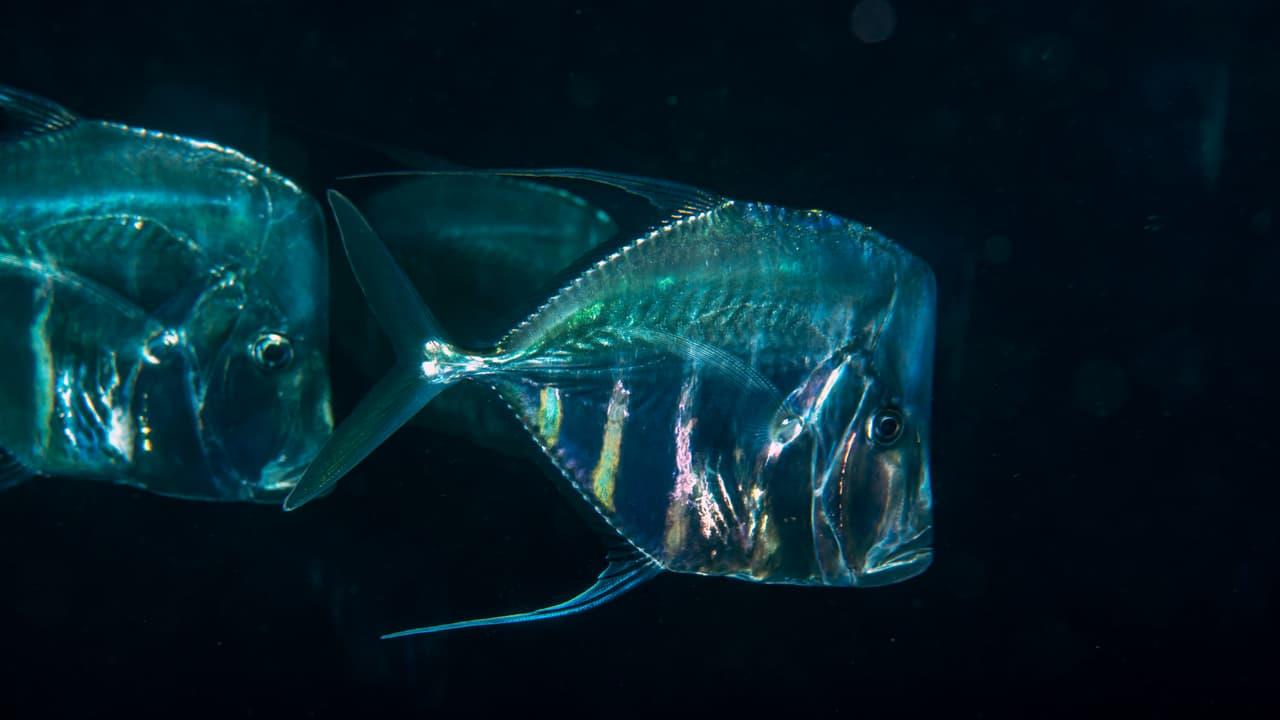Millions Of Years Ago, A Rise In Oxygen Levels Changed Ocean Life Forever
Millions of years ago, something remarkable happened in Earth's oceans. Marine animals began to live in deeper parts of the sea, where life had not been possible before. New research shows that this shift in the deep sea was made possible by a long-term increase in ocean oxygen levels. And trees played a crucial role in this change. Before this shift, the deep parts of the ocean lacked sufficient oxygen to support marine life.
However, oxygen levels in these parts of the sea began to rise and this allowed jawed fish, which are the distant relatives of most modern vertebrates, including humans, to explore and flourish in these new environments.
According to researchers, the increase in oxygen was likely driven by the growth of early forests. As plants with strong, woody structures spread across the land, they produced more oxygen in the atmosphere. Some of this oxygen eventually reached the deep oceans. And this helped transform them into habitable areas for more complex marine life.
A Puzzle from Deep Time
For many years, scientists believed that oxygen levels in the deep ocean had increased only once, long ago at the beginning of the Paleozoic Era, which dates back about 540 million years. However, new evidence suggests that the process of ocean oxygenation occurred in stages: first in shallow waters, and later in the deeper parts.
Co-lead author Michael Kipp, assistant professor of earth and climate sciences in the Duke University Nicholas School of the Environment, and his team studied sedimentary rocks that were formed beneath deep ocean water. These rocks contain chemical clues that reveal the oxygen levels in the oceans from hundreds of millions of years ago.
The researchers collected and analysed 97 rock samples from five continents. These areas were part of the outer continental shelves, where the land gradually slopes into the deep ocean.
What Did the Researchers Find
After breaking the rocks into powder and carefully isolating the selenium, the team measured the ratio of its heavier and lighter isotopes. Their findings revealed two important periods when oxygen levels increased in deeper waters:
1. The first oxygenation event occurred around 540 million years ago during the Cambrian Period. However, this rise in oxygen was short-lived and did not last long.
2. The second event started about 393 to 382 million years ago, during the Middle Devonian period. This time, the increase in oxygen was permanent and has continued ever since.
“The selenium data tell us that the second oxygenation event was permanent. It began in the Middle Devonian and persisted in our younger rock samples,” said co-lead author Kunmanee“Mac” Bubphamanee, a PhD candidate at the University of Washington.
Changes in the Oceans
This shift in oxygen levels coincided with major changes in ocean life. Jawed fish and other animals began to appear in deep sea regions for the first time. Fossil records from this period show a significant increase in the size and variety of marine animals.
Scientists refer to this phase as the“mid-Paleozoic marine revolution,” when ocean ecosystems became more complex and dynamic. Animals grew larger and began to occupy new roles in the food chain, and oxygen may have played a key role in making this possible.
Interestingly, this explosion of life occurred at the same time as the spread of early woody plants on land. These plants not only helped create Earth's first forests but also released more oxygen into the atmosphere, which eventually flowed into the ocean.
Why It Matters
Due to climate change and pollution from fertilizers and industrial waste, many parts of the ocean are losing oxygen. This pollution also leads to the growth of algae, and when the algae die, they consume oxygen as they decay.
Kipp says,“This work shows very clearly the link between oxygen and animal life in the ocean. This was a balance struck about 400 million years ago, and it would be a shame to disrupt it today in a matter of decades.”
This study serves as a powerful reminder: oxygen is the foundation of ocean life and it's something we can't afford to take for granted.
Legal Disclaimer:
MENAFN provides the
information “as is” without warranty of any kind. We do not accept
any responsibility or liability for the accuracy, content, images,
videos, licenses, completeness, legality, or reliability of the information
contained in this article. If you have any complaints or copyright
issues related to this article, kindly contact the provider above.
Most popular stories
Market Research

- Invromining Expands Multi-Asset Mining Platform, Launches New AI-Driven Infrastructure
- Superconducting Materials Market Size, Trends, Global Industry Overview, Growth And Forecast 2025-2033
- United States Lubricants Market Growth Opportunities & Share Dynamics 20252033
- Building Automation System Market Size, Industry Overview, Latest Insights And Forecast 2025-2033
- Brazil Edtech Market Size, Share, Trends, And Forecast 2025-2033
- Australia Automotive Market Size, Share, Trends, Growth And Opportunity Analysis 2025-2033






















Comments
No comment